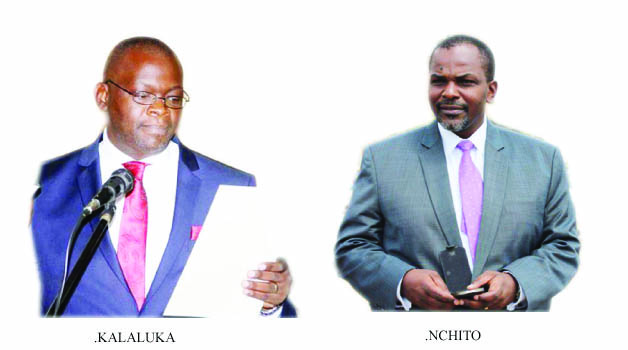THE Tribunal constituted to probe suspended Director of Public Prosecutions (DPP), Mutembo Nchito has been urged to dismiss preliminary issues raised by the DPP because they are undermining it.
Meanwhile, the Tribunal has reserved to May 7, as ruling on all preliminary issues raised by Mr Nchito.
The Annel Silungwe-led Tribunal will make recommendations on whether or not the DPP should be removed from office for alleged misconduct.
Mr Nchito has, however, raised various preliminary issues.
He claims that the Tribunal cannot hear him on the terms of references set out by President Edgar Lungu because they are fatally flawed and are not anchored on the Constitution.
Mr Nchito wants two of the Tribunal members, former chief justices Mathew Ngulube and Ernest Sakala to recuse themselves from the proceedings because of perceived biasness.
He has also questioned the manner the appointing authority amended the terms of references by abandoning two of the earlier allegations and adding a fresh one resulting in the extension of the mandate of the Tribunal.
He has also urged the Tribunal to hold its proceedings in public and further asked whether it is correct for the Tribunal to investigate him when he has not been given an opportunity to be heard on the allegations before the setting up of the Tribunal.
Attorney General Likando Kalaluka and Solicitor General Abraham Mwansa have urged the Tribunal not to entertain any preliminary issues from Mr Nchito because it is not an adjudicative Tribunal but an investigative one which draws its powers from the President.
Mr Kalaluka and Mr Mwansa submitted that the allegations of bias by Mr Nchito against Justices Ngulube and Sakala are intended to undermine the Tribunal.
The State urged the Tribunal to remain resolute, focused and not to be swayed by unsubstantiated allegations by Mr Nchito.
Mr Kalaluka submitted that the failure by Mr Nchito to substantiate his allegations against Justices Ngulube and Sakala, was a clear indication that the allegations were speculation aimed at undermining the integrity of the judges and that of the Tribunal.
The Tribunal was constituted in accordance with Article 58 of the Constitution and that there was no any other provision in the Constitution that recommended the removal of the DPP from office.
Other than what was stipulated in the Constitution, the Tribunal could not assume an additional mandate of adjudicating other than investigating Mr Nchito.
Mr Kalaluka said that Article 58 did not provide any other a procedure on how the President could come up with the terms of references which could be said to be incompetent as alleged by Mr Nchito.
The terms of reference were merely to give guidance to the Tribunal and for the benefit of the person complained against and as such Mr Nchito should have asked for further particulars if he felt that the information availed was not enough to enable him defend himself.
Mr Mwansa said if Mr Nchito wanted to challenge the membership of the Tribunal, he should have challenged the appointing authority.
But Mr Nchito insisted that once the Tribunal is sworn in, the appointing authority has no powers to issue further instructions to it otherwise, he will be interfering in the proceedings.







